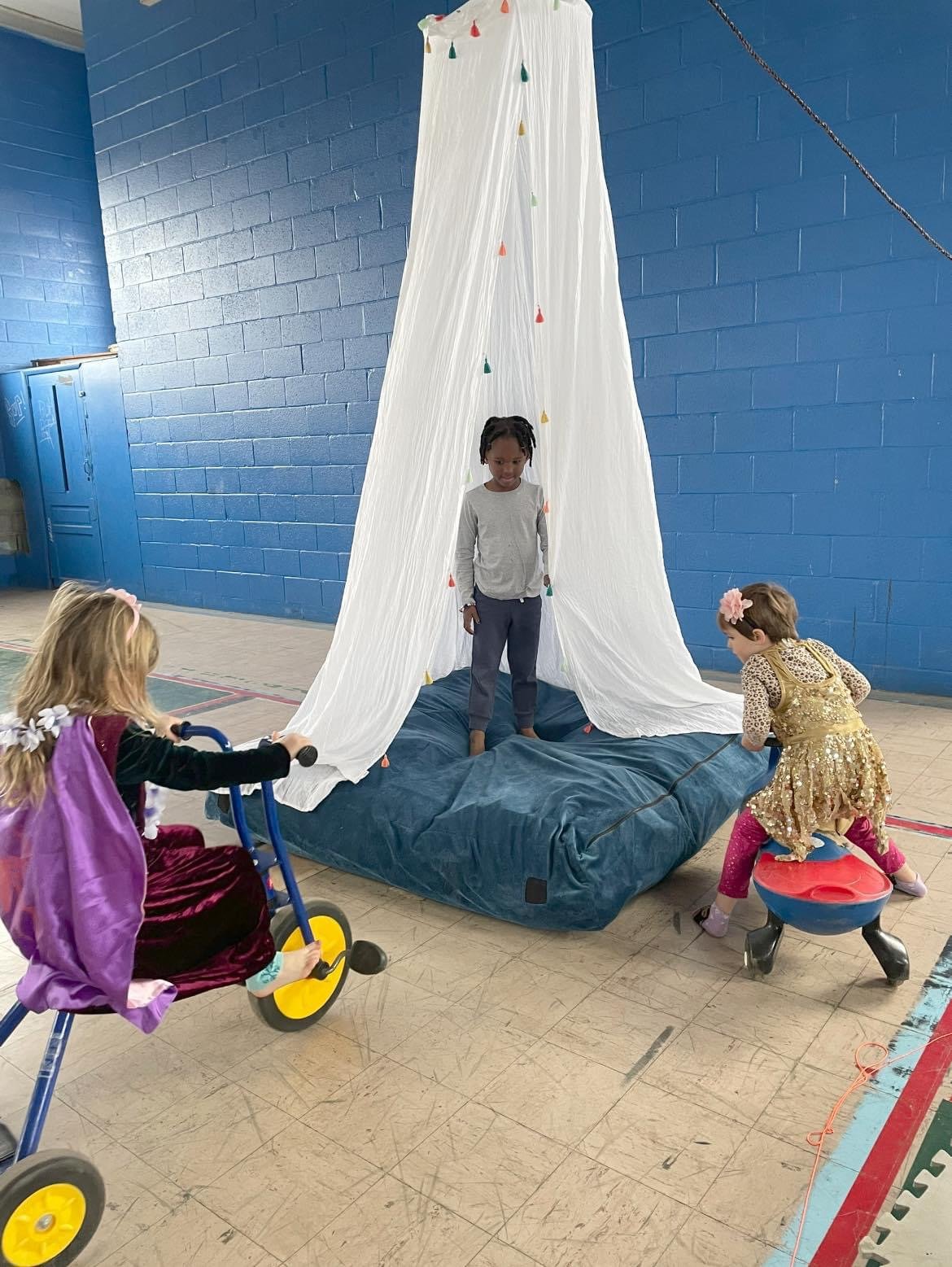“ “Trying to define play is like trying to define love. You can’t do it. It’s too big for that.””
play is power...
We are a play project in northeast Baltimore.
At the Community Play Project, we value a child’s right to play. Our program is designed to deepen and enrich children’s encounters with the world, their community, and each other.
We are an affordable, community-based project dedicated to play as a right for all children.
The Community Play Project is designed to provide a high-quality, well-supported play experience for children ages 2-5.
the playwork principles
1. All children and young people need to play. The impulse to play is innate. Play is a biological, psychological and social necessity, and is fundamental to the healthy development and well being of individuals and communities.
2. Play is a process that is freely chosen, personally directed and intrinsically motivated. That is, children and young people determine and control the content and intent of their play, by following their own instincts, ideas and interests, in their own way for their own reasons.
3. The prime focus and essence of playwork is to support and facilitate the play process and this should inform the development of play policy, strategy, training and education.
4. For playworkers, the play process takes precedence and playworkers act as advocates for play when engaging with adult led agendas.
5. The role of the playworker is to support all children and young people in the creation of a space in which they can play.
6. The playworker’s response to children and young people playing is based on a sound up to date knowledge of the play process, and reflective practice.
7. Playworkers recognise their own impact on the play space and also the impact of children and young people’s play on the playworker.
8. Playworkers choose an intervention style that enables children and young people to extend their play. All playworker intervention must balance risk with the developmental benefit and well being of children.
Scrutiny Group, Cardiff, 2005
“Courtney Gardner and her fellow teachers have created a culture that says to children, “you belong here”... When I go into an environment that allows children to climb higher than their body, throw objects into space, paint from the soul, spray the world around me, ask sincere questions of the storyteller, roughhouse with precision and excitement, it is hard not to sob with excitement. The adults in this program model respect, kindness, natural curiosity. Every child needs to be in this program....”
















